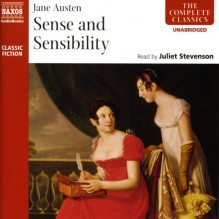
Francie Nolan grows up in the tenements of Williamsburg in Brooklyn, New York in the early years of the 20th Century. The granddaughter of German and Irish immigrants, Francie and her younger brother Neeley (real name Cornelius) grow up dirt poor, but thankfully don't really realise it until they get older. Their mother, Katie, works hard as a janitress to make sure they have a place to stay and food on the table. Their father, Johnny, is handsome and charming, a gifted singer, and a drunk. He works as a singing waiter when he can, but is too unreliable to hold down a steady job. Francie and Neeley help out as best they can, collecting junk and selling it for pennies.
The daughter and sister of women who never even learned how to read and write, Katie Nolan values education above all, and is determined that both of her children are going to get educated, whatever the cost. Even before the children are literate themselves, she reads them a page from the Bible and from the collected works of Shakespeare. Francie is quiet and bookish and loves the local library, determined to read her way through every book on the shelves, from A to Z. She reads a book a day and does well in school, so well that the family lie about her address so she can go to a better school in a more prosperous part of town.
Francie works hard to do well in school, but has to get a job rather than go to high school, or her family can't manage. She doesn't give up on her dream of going to college eventually, though, and through perseverance and determination, slowly manages to achieve her goals.
I'm sure a lot of American teenagers possibly read this book at some point during their school years. Written in the 1940s, when it wouldn't have been as much of a historical novel as it is now, it is a wonderful, if very sad and affecting, portrayal of what growing up poor in Brooklyn pre-World War I would have been like. It's a book that doesn't shy away from showing the harsh realities of being poor and hungry, but it's not an utterly miserable book, by any means. The Nolan children may not have a lot of money, but they are taught to be responsible, work hard and they have their pride. Katie Nolan doesn't take charity from anyone and when her husband, who she stole away from her best friend because Katie just knew she had to have him, turns out to be weak and unreliable, well, then she just shoulders more of the burden of providing for the family. Johnny Nolan may be a drunk, but he's never violent, abusive or cruel and he does what he can to take care of his wife and children.
As she grows older, it becomes very obvious to Francie that her mother will always love Neeley best, and she quietly resents her mother for this fact. At the same time, she herself admits that she loves her father more, as he seems to see her and understand her in a way her mother never could. She's a fairly lonely child, finding it hard to trust women other than her closest kin, having seen the judgemental nature of many of the women in the neighbourhood. Living mainly in her books, she nonetheless sees the realities of life and the frailties of human nature all around her in the tenements and in the marriages of her parents and aunts.
Even with snatches of humour and the occasional hint of levity, the book really is very sad for a lot of the story, because there is nothing nostalgic or romantic about being the working poor. As Francie comes of age, she is fully aware how often she and her family are judged, and hard they must work just to make ends meet, let alone to put something aside for a rainy day. She comes to share her mother's opinion that education is the way out of poverty and does her very best to excel in school.
This book made me smile, it made me sad, and towards the end, it made me actually sob, because I had been so engrossed in the story that I didn't want it to end. About two thirds of the way through, the story was getting so grim and I was so despondent that I spoiled the rest of the story on Wikipedia. I wasn't sure I was going to be able to read to the end if I didn't know that things were going to get better for the Nolans eventually.
A wonderful coming of age story, chronicling a very real past, with a wonderful set of characters. Francie's immediate and extended family are all wonderful. This book is a beloved classic for a reason. It's a sad and emotional reading experience, but is not relentlessly bleak all the way through and there is hope and a promise of a better life for the surviving characters at then end of the story.
Judging a book by its cover: The version I read has a simple and elegant cover, with the major colours being green (along the spine) and brown, towards the bottom of the book and reflected in the font used for the title. There is a faint sketch of a tree behind the title, also done in greens. It's a good cover, if nothing flashy or too exciting.

 Log in with Facebook
Log in with Facebook 









